Dr. Christopher Womack 2025
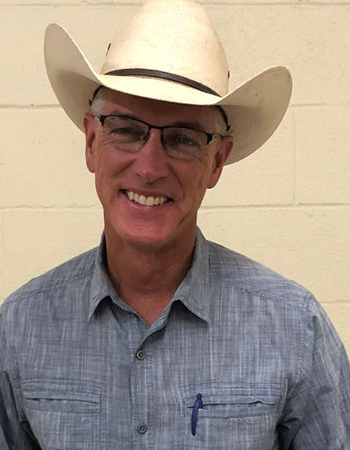
Title: Interactions Between Human and Animal Health
About The Speaker
Dr. Chris Womack is co-owner of Los Caballos Veterinary Clinic. Chris Womack has been with the practice Since 1992. Graduating from vet school at Texas A&M University, Texas A&M School of Veterinary Medicine, Being in practice for so long has given me a vast knowledge of all different species. I pride myself on providing quality medicine. A passion of mine is herd health and helping clients achieve their ranching goals. I love to get away from town and go to the ranch with my border collie, Lucy. While at the ranch I enjoy improving the genetics of our herd. And did I mention I love cows?
Dr. Rebekah Naylor 2024
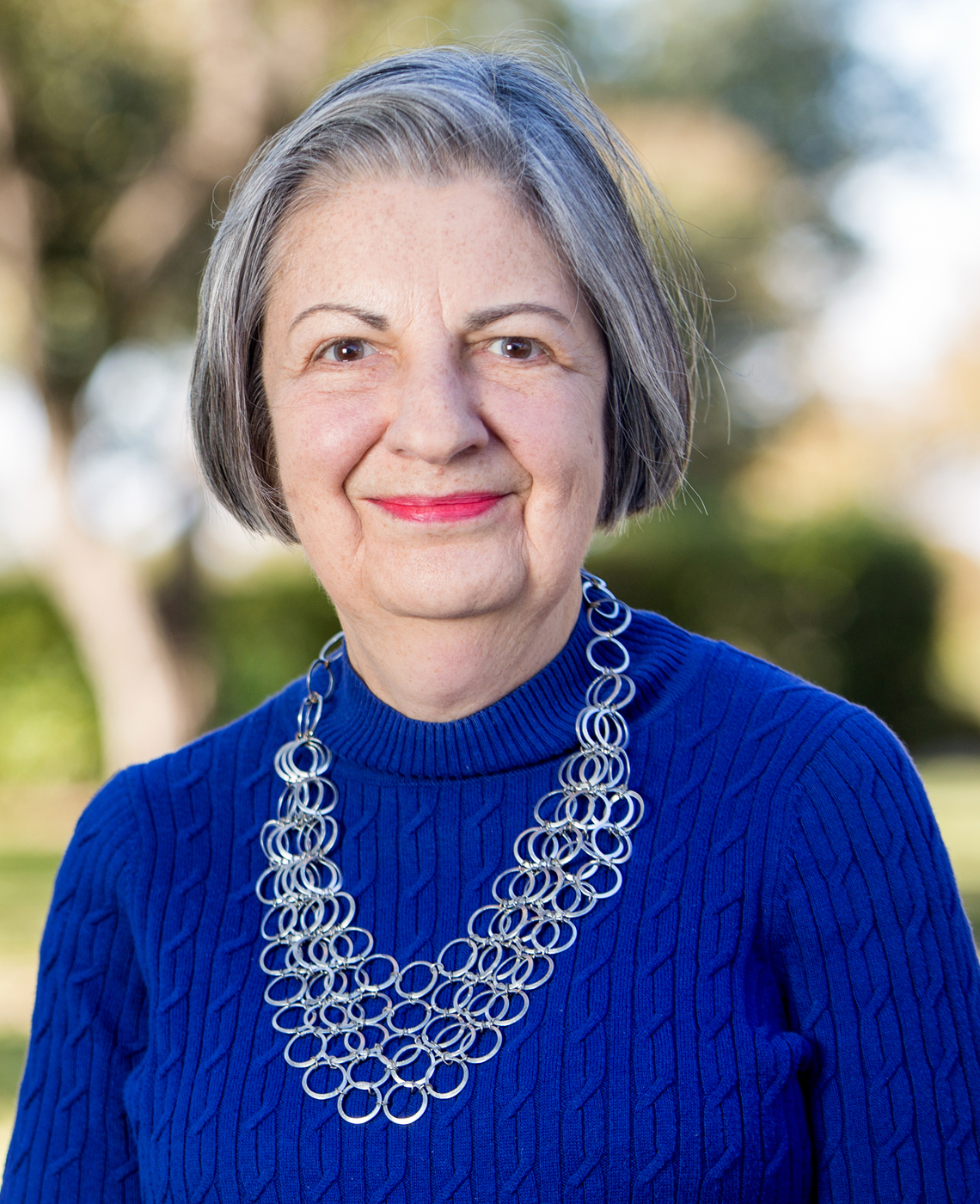
Title: TBA
About The Speaker
Dr. Naylor established the Mercy Clinic in Fort Worth, Texas where many CSE students frequently volunteer, as well as helped found a nursing school in India. Naylor spent more than 35 years serving as a general surgeon, evangelist and church planter in India. Devoting 28 of those years to the people of Bangalore, Naylor worked as chief of medical staff, administrator and medical superintendent in the Bangalore Baptist Hospital. She also oversaw construction of the Rebekah Ann Naylor School of Nursing in 1996, served as a professor of anatomy and physiology at the school and celebrated the first class of nursing graduates in 1999. Upon her return to the United States, Naylor joined the faculty of UT Southwestern Medical School in Dallas, taught in the surgery department and was later named associate clinical professor of surgery where she served until her retirement in 2010. She also received the Pro Ecclesia Medal of Service from Baylor University.
Dr. Elisa Marroquin 2023
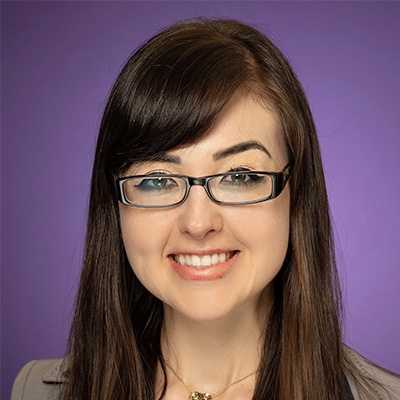
Title: The Gut Microbiota and Weight Loss
About The Speaker
Elisa is an assistant professor in the TCU Department of Nutritional Sciences. She completed her postdoctoral training at the University of Texas and obtained her Ph.D. and M.S. in Exercise Physiology and Nutrition from Baylor University thanks to a Fulbright Scholarship. She has been a speaker for the World Obesity Federation, the Academy of Nutrition and Dietetics, the Texas American College of Sports Medicine, the International Society of Sports Nutrition, and the Mexican Society of Obesity, among others. In July 2022, Elisa was awarded an NIH grant as a Co-PI with UT-Southwestern and UT-Health researchers to study the blood and gut microbiotas in patients with bariatric surgeries. Elisa’s main research interests include obesity and its relationship with dietetic, exercise, pharmacological, and surgical interventions. More recently she has gained a deep interest in the relationship between obesity and the Gut Microbiota. At TCU she teaches Gut Microbiota and Health, Nutrigenomics, Research Methods, and Culinary Medicine.
Dr. S. Lynne Stokes 2022
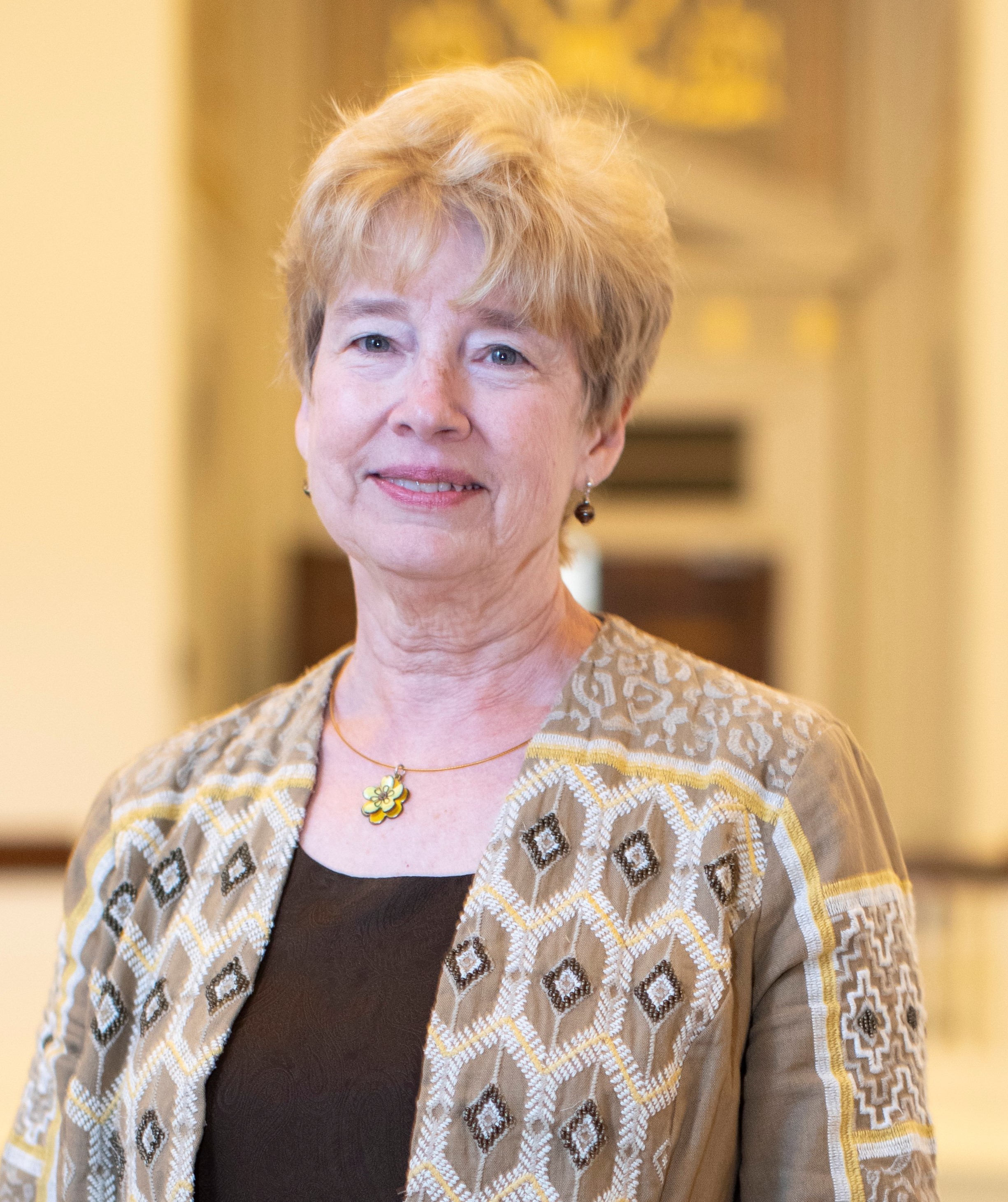
Title: Honing your Bologna Detector
We hear a lot these days about “fake news,” as if it is a new phenomenon. The spreading of bologna is not new, but what is new is how fast it can travel. In this talk, I will discuss ideas to help you be a more skeptical thinker, as well as the tools that bologna producers use to disarm our critical thinking. I will also discuss Brandolini’s Law, aka the [bologna] asymmetry principle: the amount of energy needed to refute [bologna] is an order of magnitude bigger than to produce it. Though this is discouraging, the methods of science have been successful in developing some promising bologna refutation methods, which I will share. Finally, I will challenge you to use these tools to stop, and possibly even roll back, the spread of bologna in our society.
About The Speaker
Lynne Stokes is a Professor and former Chair of the Department of Statistical Science at Southern Methodist University. Beginning in Fall 2020, she will be the inaugural Director of SMU’s Data Science Institute. Her research in Statistics has been in the areas of sampling, measurement and non-sampling error methods, and disclosure limitation. She is especially interested in how to use big data resources to identify and solve social and public health problems. Professor Stokes was previously employed by the U.S. Bureau of the Census and the U.S. Fish and Wildlife Service, the University of Texas at Austin, and was a visiting professor at Los Alamos National Labs. She is a Fellow of the American Statistical Association and recipient of their Founder’s Award for service to the profession, as well as a recipient of SMU’s Caren Prothro Faculty Service Award and Dedman Family Distinguished Professor Award.
Dr. Lin Zhong 2019

Title: How Computing Helped us Win the Cold War
Behind the supreme military might of the USA is its supreme computational power. This talk tells three stories from the cold war era that highlights this point. When the Soviet Union launched the first satellite, how did two US scientists figure out its orbit and pinpoint its location? How did a theoretical paper published by a Soviet scientist help Lockheed build the first modern stealth aircraft F-117 Nighthawk? Why was the Soviet Mars program plagued by reliability problems?
About The Speaker
Lin Zhong is Professor of Electrical & Computer Engineering and Computer Science (by courtesy) with Rice University. He received his B.S and M.S. from Tsinghua University and Ph.D. from Princeton University. He has been with Rice University since September 2005. At Rice, he leads the Efficient Computing Group to make computing, communication, and interfacing more efficient and effective. He and his students received the best paper awards from ACM MobileHCI, IEEE PerCom, and ACM MobiSys (3), and ACM ASPLOS. He is a recipient of the NSF CAREER Award, the Duncan Award from Rice University, and the RockStar Award from ACM SIGMOBILE. He is a Fellow of IEEE. More information about his research can be found at https://www.ruf.rice.edu/~mobile/.
Dr. Paul B. Paulus 2018
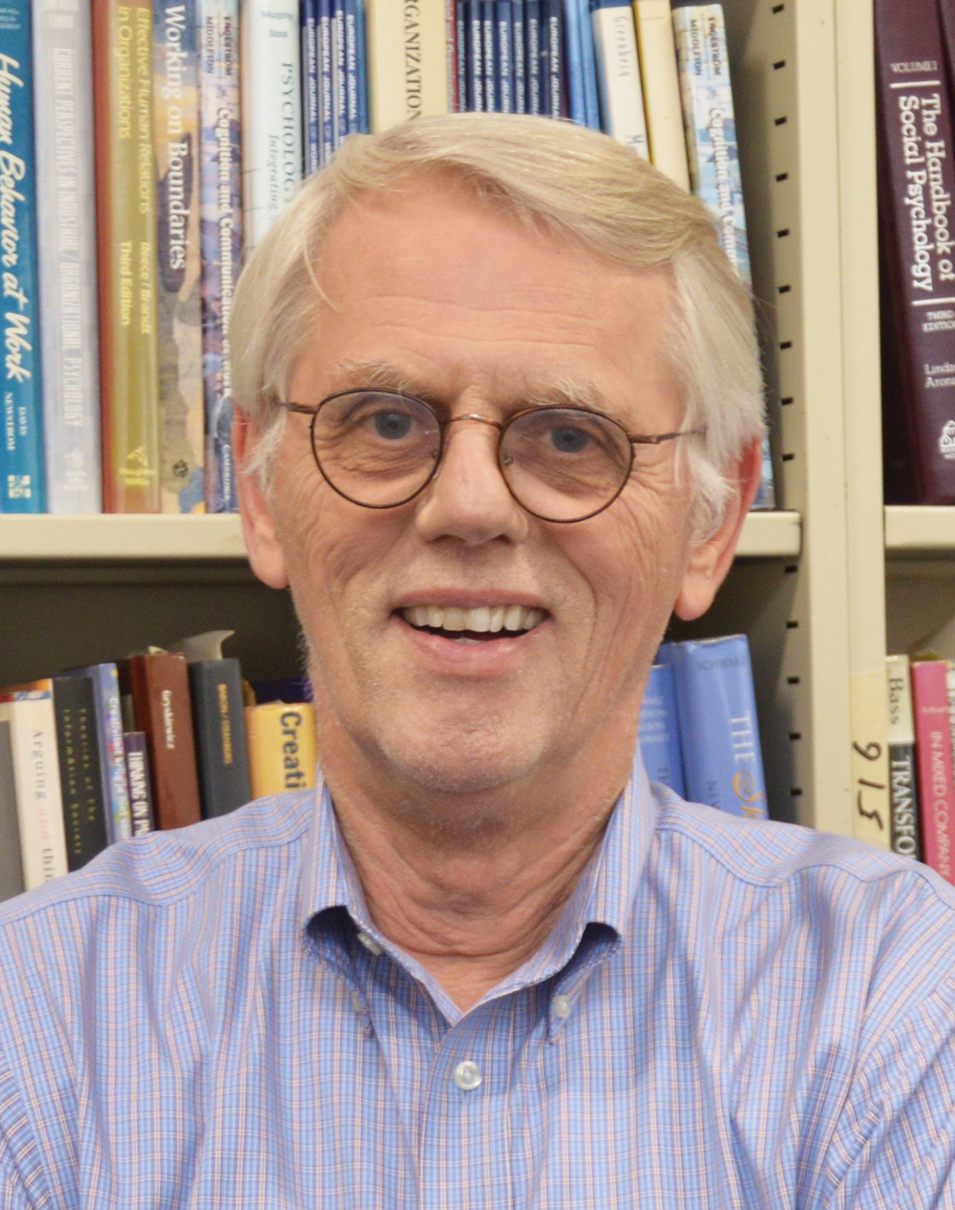
Title: Genius is as Genius Does
Friday, April 20, 2018: 5:00 pm, SWR LH1: Most of us are enamored with the geniuses of our world such as those who win Nobel Prizes. It is often presumed that the key to their success was their great intelligence. Even though all of them were very smart, so are many others in their fields. So what distinguishes people who are very successful in their careers from those who are not? I will highlight some of the key factors that are related to high levels of creative achievement in science, the arts, and the world of business. Many of these have more to do with what I would call "active intelligence" and "collective intelligence" than "passive intelligence".
About The Speaker
Paul B. Paulus is the Distinguished University Professor in the Department of Psychology at the University of Texas at Arlington. For the past 20 years he has been investigating the factors that influence group creativity. With Bernard Nijstad he edited the first scholarly volume on group creativity, and he has published over 60 papers and chapters on that topic and the related issue of team innovation. He has made numerous invited presentations to groups from the academic, business, engineering, and intelligence communities. In addition to his teaching and research career, he has served as Chair of the Department of Psychology and Dean of the College of Science. He has been a visiting professor at Bar Ilan University, the University of Groningen, the University of Sidney, the University of Pittsburgh, Carnegie Mellon University, and the Uniformed Services University of the Health Sciences.
Dr. Peter Fritsch 2017
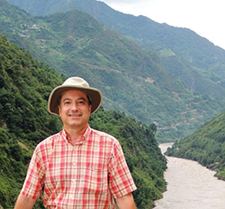
Title: A New Age of Species Discovery
About The Speaker
Dr. Peter Fritsch holds two titles at BRIT - Vice President of Research and Director of the Herbarium. As Vice President of Research, Dr. Fritsch is charged with the oversight, represention, and development of BRIT’s various research programs in botanical science. As the Director of Herbarium, he is responsible for the care and development of BRIT’s over one million herbarium specimens. In addition, Dr. Fritsch conducts his research program on plant diversity, comparative morphology, and biogeography, with a focus on the heath family (Ericaceae) and its relatives. He also continues his passion for biodiversity, conservation, and capacity-building work both nationally and internationally. Current projects include work in China, the Philippines, and Borneo, in addition to Texas.
Dr. Connie Guttersen 2016
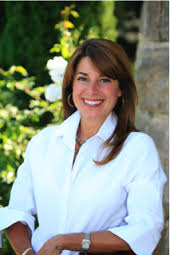
Title: The Promise of a Visionary Scientific Approach
Today there is an unprecedented opportunity for our scientists to aspire to something magnificent. Transforming the study of science to captivate the interest of our modern day population. It is cutting edge research that pushes the field in an entirely new direction, one full of novel insight and valuable applications. From searching for the cure for cancer and understanding how genes and nutrients interact on the molecular level to the latest advances for a more sustainable environment. Strategic leadership with this valuable knowledge creates a brighter future for visionary students.
About The Speaker
Dr. Connie Guttersen, R.D., Ph.D. is a nationally and internationally renowned registered dietitian and culinary professional, New York Times bestselling author of The Sonoma Diet and a sought-after instructor. She is a registered dietitian and nutrition instructor at the world famous Culinary Institute of America.
3MT Competition Finalists 2015

Title: Three Minute Thesis Competition
3MT: The College of Science & Engineering (CSE) will initiate a “Three Minute Thesis” competition modeled after the competition developed at the University of Queensland (http://threeminutethesis.org/). Three Minute Thesis (3MT®) is a research communication competition developed by which challenges research higher degree students to present a compelling oration on their thesis and its significance in just three minutes in language appropriate to a non-specialist audience. This competition format is spreading across the world – see http://threeminutethesis.org/international.
About The Speaker
Instead of a keynote speaker our presenters this year are the finalists are undergraduate and graduate students from College of Science & Engineering.
Anousheh Ansari 2014
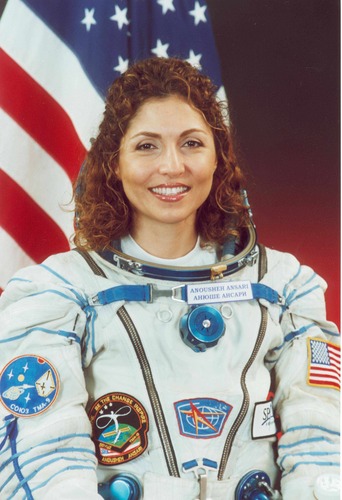
Title: Dare to Dream: How perseverance allowed me to accomplish my lifelong goal of space flight
About The Speaker
"First Female Private Space Explorer & First Space Ambassador”
On September 18, 2006, Anousheh Ansari captured headlines around the world as the first female private space explorer. Anousheh earned a place in history as the fourth private explorer to visit space and the first astronaut of Iranian descent.
Anousheh is a serial entrepreneur and co-founder and chairman of Prodea Systems, a company that will unleash the power of the Internet to all consumers and dramatically alter and simplify consumer’s digital living experience. Prior to founding Prodea Systems, Anousheh served as co-founder, CEO and chairman of Telecom Technologies, Inc. The company successfully merged with Sonus Networks, Inc., in 2000.
Dr. Neal Burnette 2013
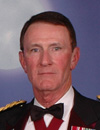
Title: A Horned Frog’s Peripatetic Journey in Biological Research
Dr. Neal Burnette studied in biology and chemistry (and theater and ballet) at TCU led to a doctorate from Vanderbilt; to postdoctoral and staff positions at Albert Einstein College of Medicine, Fred Hutchinson Cancer Research Center, and the Salk Institute; to a small biotech company that became Amgen; and to a simultaneous career in the US Army. Along the way, retroviruses were dissected; hepatitis B vaccine was made in recombinant yeast; site-specific mutagenesis yielded genetic "toxoids" for whooping cough and cholera; for the first time, an algorithm quantified the impact of infectious diseases on US military operations and ordered research priorities; and, in Swiftian fashion, the need to assess newly-discovered monoclonal antibodies resulted in the invention of one of the most widely-used biological research and clinical diagnostic techniques - Western blotting.
About The Speaker
Born in 1944 in New York state, Burnette traveled with his family all over the U.S. and Japan while his father served in the U.S. Air Force. Burnette wanted to be a military pilot like his father, who was a bomber pilot during World War II and a fighter pilot during the Korean war, but his bad eyesight put an end to that dream. He was very much interested in science, but, in his junior year of high school, his mother encouraged him to take speech and drama classes after he got injured during football spring training. Burnette says he became “a starry-eyed kid who wanted to be an actor.”
Dr. Rhiannon Mayne 2012
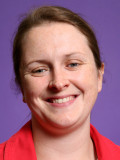
Title: From Outer Space to Antarctica: The Antarctic Search for Meteorites Program
About The Speaker
Dr. Rhiannon Mayne is the Curator of the Oscar E. Monnig Meteorite Collection and Gallery of TCU. The Monnig Meteorite Collection is one of the world’s largest university-based meteorite collections and, as its curator, she is responsible for the growth and preservation of the collection, as well as numerous outreach projects in the local community. She is also one of the advisors for the BS in Geology.
Darlene Ryan 2011
Title: From Research to Business: What Does it Take?
About The Speaker
Darlene is the Director of Tech Fort Worth.
Jonathan Shapiro 2010
Title: Sustainable Technology, Trends and Career Opportunities
About The Speaker
CEO, The Texas Institute for Sustainable Technology Research
Dr. Robert Middaugh, M.D. 2009
Title: Thinking . . . It’s the Best Policy
About The Speaker
Andree Griffin 2008
Title: Urban Horizontal Drilling in the Barnett Shale
About The Speaker
Manager of Geology, Fort Worth Basin, XTO Energy
Dr. Jack McCallum, M.D. 2007
Title: Polio vaccine development: ethical ramifications
About The Speaker
Amanda Neill 2006
Title: BRIT and TCU Students: The Andes to the Amazon Program
About The Speaker
Head of Botanical Information and Collections at BRIT
Dr. Talat Rahman 2005
Title: Science at the Nanoscale: promising facts or fiction?
About The Speaker
Dr. Paul Schenk 2004
Title: The moons of Jupiter
About The Speaker
Staff Scientist, Lunar Planetary Institute
Dr. Michael McCracken 2003
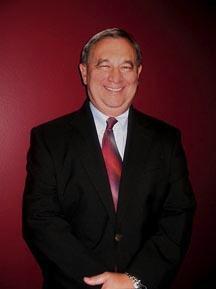
Title: TBA
About The Speaker
Dean, TCU College of Science & Engineering
Participation
Participation in the Symposium offers students practical experience in giving presentations in a professional but relaxed setting. It is also a fun social event where students can learn about research in other departments in the College.
Announcements
- No announcements right now.